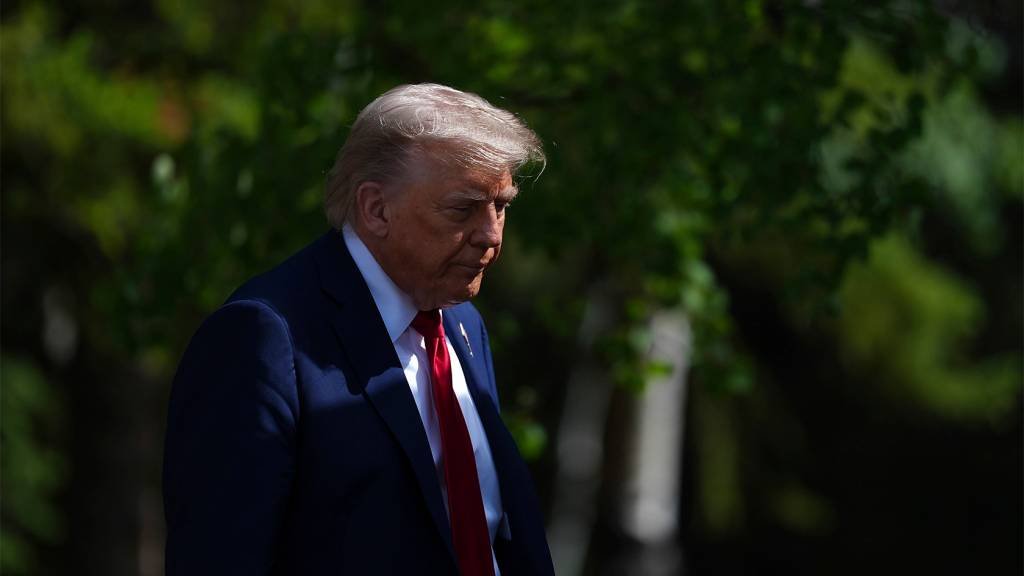
Once upon a time, the murder of a U.S. politician by a right-wing terrorist would have attracted extensive media coverage. However, the assassination of Minnesota Democrat Melissa Hortman and her husband last weekend, alongside the shooting of another Democratic politician, was rapidly overshadowed in the news cycle. This alarming trend highlights a surge in political violence and rhetoric in the United States, a phenomenon that has been escalating in recent months.
Political violence has reached unprecedented levels, with incidents such as the assassination attempt on former President Donald Trump last year marking a disturbing shift. The Trump administration itself has been accused of contributing to this climate of violence, employing masked agents to seize individuals off the streets, deploying the National Guard and Marines illegally in Los Angeles, and arresting political opponents, including a New York Democratic mayoral candidate. The assault on Democratic Senator Alex Padilla further underscores this troubling trend.
America’s Descent into Civil Conflict
The assassination of a politician has become yet another data point in America’s descent into civil conflict and authoritarianism. This is part of a broader narrative of national decline, characterized by capital flight, chaotic decision-making, rising Treasury bond yields, and a shift of innovation to China. The erosion of U.S. global soft power is becoming increasingly evident.
The current administration, led by an unstable autocrat, seems to oscillate between accepting the logic of imperial decline and railing against it. The once-dominant neoconservatives have been replaced by “America Firsters,” who prioritize domestic concerns over international commitments, such as maintaining a U.S. military presence globally and supporting free trade.
Global Implications and the Rise of China
The withdrawal of the U.S. security guarantee for its allies, coupled with demands for increased defense spending, reflects a significant shift in American foreign policy. Despite this, the imperial urge persists. The U.S. continues to believe it can contain China’s economic power, even as China emerges as a global leader in innovation and technology, thanks to substantial government investment in science and research.
China’s rise contrasts sharply with the increasing hostility towards science and fact-based reasoning in the U.S.
The decline of American influence inevitably leads to more conflicts on the global stage. Israel, once restrained by its U.S. guarantor, now acts with impunity, committing acts of genocide and ethnic cleansing against Palestinians. The U.S. response to these events has been lackluster, with efforts to mediate conflicts, such as the Gaza situation, proving short-lived.
Australia’s Strategic Dilemma
As the evidence of U.S. imperial decline mounts, Australia’s governing class faces a strategic dilemma. The nation’s reliance on a powerful ally is deeply ingrained, yet geographic distance limits its influence over Washington. Australia’s major institutions, including its defense and intelligence communities, are slow to adapt, often clinging to outdated strategies.
The government has made some moves, albeit fewer than allies like the United Kingdom, to call for a change in Israel’s course. However, it stops short of acknowledging the genocide and ethnic cleansing taking place. Meanwhile, Australia’s response to China’s offer to collaborate in the face of U.S. tariffs was dismissive, reflecting a reluctance to embrace new alliances.
Defense Spending and Strategic Alignment
Australia’s defense and security establishment remains entrenched in a vassal state mindset. In response to U.S. calls for higher defense spending, Australia has accelerated its integration into the U.S. military apparatus, offering bases for potential conflicts with China and Iran. This week, the defense minister effectively guaranteed Australia’s involvement in such conflicts.
America-aligned hawks in Australia’s defense establishment have long advocated for increased defense spending, yet they fail to address the financial implications of such a move.
The Coalition, meanwhile, remains stuck in outdated paradigms, advocating for increased defense spending without clear plans. Their unwavering support for Israel and criticism of Labor’s stance on China highlight a lack of strategic vision.
The Role of Media and Public Perception
Australia’s media landscape, dominated by a U.S. firm committed to American imperial interests, plays a significant role in shaping public perception. As media outlets undergo job cuts, expertise is being stripped away, leaving the public less informed about the complexities of global politics.
The institutional incapacity to address the historic moment of U.S. imperial decline poses significant challenges for Australia. As traditional strategic supports crumble, the nation faces a more chaotic and uncertain world. Without a governing class equipped to navigate these challenges, Australia risks paying a steep price in the future.







